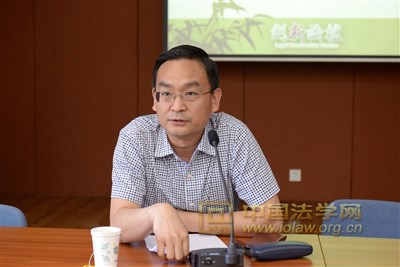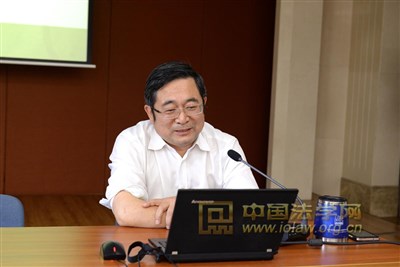On May 29, 2018, the second lecture of the Innovation Forum of CASS Law Institute and CASS Institute of International Law in 2018 was successfully held at the conference room of CASS Law Institute.The lecture, entitled “Legal Concepts and Legal Culture in Religions”, was given by Professor Mo Jihong, Deputy Director of CASS Law Institute and chief researcher of the innovation project “Inheriting and Drawing on the Essence of the Traditional Chinese Legal Culture”. It was presided over by Professor Gao Hancheng, a researcher of the Project, and attended by over 40 experts, scholars, and graduate students from CASS Law Institute and CASS Institute of International Law.


In the lecture, Professor Mo first introduced the different understandings of “law” in ancient China and traditional western societies and gave a brief introduction to and made comparisonsbetweendifferent connotations of the “law” in the three main religions in the world, namely Buddhism, Christianity, and Islam, pointed out the differences between the legal concepts in the religious world and those in the secular world, and the inevitable limitations encountered by secular legal concepts and legal culture in trying to describe the legal concepts in the religious world, especially the sense of impotence felt by western dualist world view when it tries to understand and describe the Buddhist language. Next, Professor Mo analyzed the influencesof three major religions on the legal concepts and legal culture of secular societies through the comparison of between different natures, sources, normative expressions, basic connotations, characteristics, and effects of “law” in Buddhism, Christianity, and Islam. Finally, Professor Mo gave some concrete examples to show that attention must be paid to legal concepts and legal culture of various religions in order to implement the religious freedom, administrate religious affairs in accordance with law, uphold and develop socialist ethnic relationship of equality, unity, mutual help, and harmony, and construction a law-based government and a law-based society. In the Chinese context, it is of great significance to study by legal dogmatic method and disseminate the legal concepts and legal culture ofdifferent religions.


